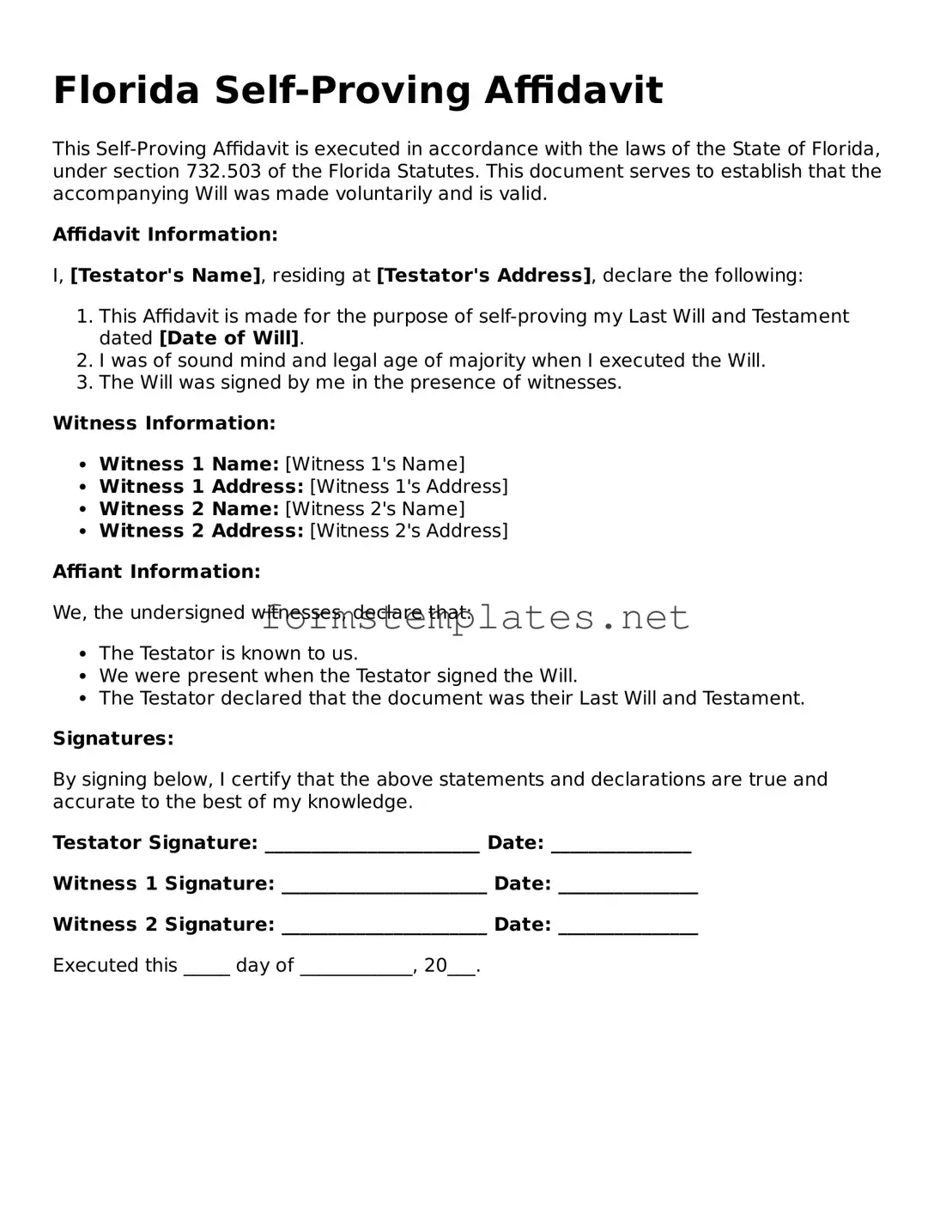Attorney-Approved Florida Self-Proving Affidavit Template
The Florida Self-Proving Affidavit is a legal document that allows a testator's will to be validated without requiring witnesses to testify in court. This form simplifies the probate process by confirming that the will was executed properly. Understanding its purpose and how to complete it can provide peace of mind during estate planning.
Open Editor Now

Attorney-Approved Florida Self-Proving Affidavit Template
Open Editor Now

Open Editor Now
or
⇓ PDF Form
Your form still needs attention
Finalize Self-Proving Affidavit online — simple edits, saving, and download.